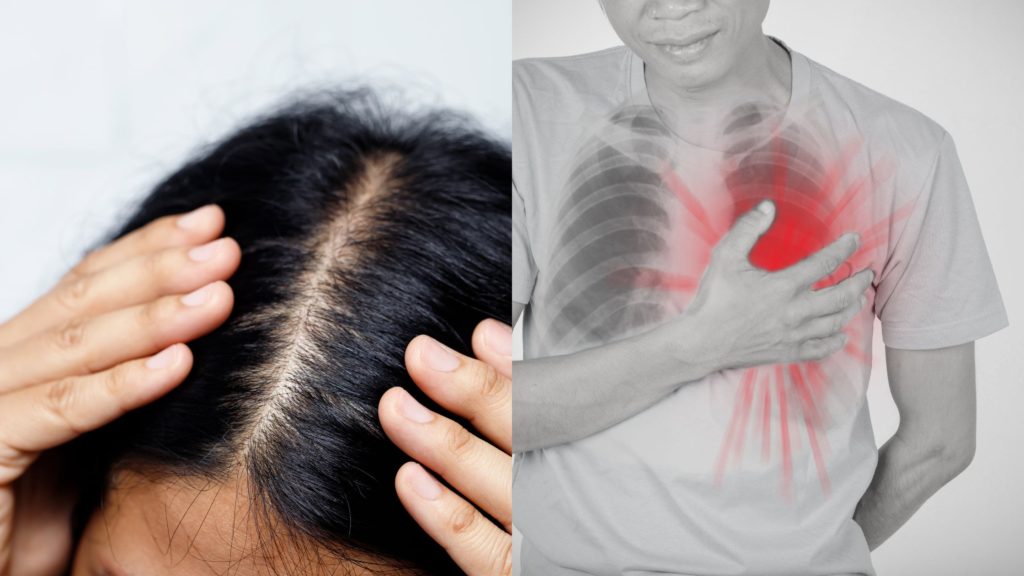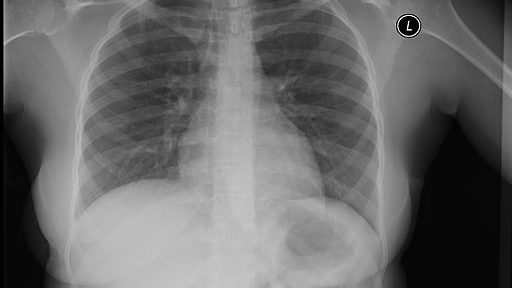Last updated on April 16th, 2025 at 12:54 pm

Do you know, by detecting the hormones on your scalp hair can predict if you will have an increased risk of a heart attack later, suggest a recent study. This recent study was conducted by a team of scientists in the Netherlands1 and their findings were presented at the European Congress on Obesity (ECO) in Dublin, Ireland.
So, what actually made the scientist link stress hormones detected in scalp hair to increased risk of having heart disease later? Let’s find out.
Mental stress and stress hormones in scalp hair
Our brain is constantly exposed to increased mental stress in the contemporary urban lifestyle and demanding work conditions. With time the stress becomes chronic, to which our body responds by secreting more stress hormones or glucocorticoids. The elevated stress hormone level is one of the causes of cardiovascular diseases.
This elevated glucocorticoid is also reflected in hormones found in the scalp hair. Scientists already use hair glucocorticoids as biomarkers to represent cumulative glucocorticoid exposure over several months.
These biomarkers have been linked to obesity and cardiometabolic parameters. Scientists already knew the link between increased levels of stress hormones with future weight gain, this time the researchers in Netherlands were curious whether it can be linked to an increased link of heart disease in future life.
Researchers collected 6341 hair samples
To find out this, the researchers first recruited participants from Lifelines cohort study. Lifelines cohort study is a large, multigenerational study that includes over 167,000 participants (10%) from the northern population of the Netherlands. To date, they have included participants from three generations.
In this study, the researchers collected 6341 hair samples from participants. These samples were examined to measure cortisol and cortisone levels in the hair. They were trying to investigate their relationship with the development of cardiovascular diseases (CVD).
Researchers followed up for a period of 5-7 years.
In our analysis, we adjusted for various factors including age, sex, waist circumference, current smoking, systolic blood pressure, and the presence of type 2 diabetes mellitus
Increased stress hormones in younger people’s hair is more concerning
The result of the study was more concerning for younger adults of age below 57 years. The research revealed that the participants whose hair samples were found to have higher long-term cortisone levels had twice more increased risk of having a cardiovascular disease like a stroke or heart attack. Fortunately, simple regular physical activity like brisk walking is linked to a lower risk of heart disease.. And this risk increased to three times in those aged 57 years or younger.
However, seniors with age 57 and older have reason to relax. The research also revealed that in people aged 57 and older, hair cortisone and cortisol were not strongly linked to incidents of heart disease.
The principal investigator of the study from Erasmus University Medical Center, Professor Elisabeth van Rossum says “Our hope is that hair analysis may ultimately prove useful as a test that can help clinicians determine which individuals might be at high risk of developing cardiovascular disease. Then, perhaps in the future targeting the effects of stress hormones in the body could become a new treatment target,”
Finally, the study indicates that higher long-term glucocorticoid levels or stress hormones measured in scalp hair are significant predictors of future cardiovascular diseases.
Keep Reading: Get Fit, Feel Better: Study Reveals Link Between Exercise and Improved Mental Health
The author is a physiotherapist who has been practising for the last 17 years. He holds a Bachelor's in Physiotherapy (BPT) from SVNIRTAR (Swami Vivekananda National Institute of Rehabilitation and Research), one of the prestigious physiotherapy schools in India.
Whatever he learns dealing with his patient, he shares it with the world through blogs and e-books. He also owns a YouTube channel, "Sunit Physiotherapist" with over 8 lakh active subscribers. Here, he shares everything he gets to learn serving the patient.




